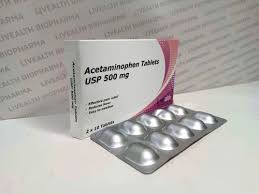The Pharmacy and Poisons Board (PPB) has unequivocally addressed growing public concern, confirming that paracetamol (acetaminophen) remains a safe and recommended option for pregnant women, provided it is used strictly as prescribed.
Kenya’s National Medicines Regulatory Authority emphasized in a statement issued Wednesday that the drug is still the primary treatment for pain and fever during pregnancy. Its safety, however, hinges entirely on the guidance of a qualified healthcare professional.
Dispelling Neurodevelopmental Fears
“Paracetamol is one of the most widely used medicines globally and here in Kenya,” stated Dr. Ahmed I. Mohamed, the acting CEO of PPB. “While some studies have suggested potential links to conditions like Autism Spectrum Disorder (ASD) or Attention Deficit Hyperactivity Disorder (ADHD) in children, we maintain there is no conclusive scientific evidence to confirm these associations.”
The Board further noted that its Pharmacovigilance Division has received no local reports linking paracetamol use during pregnancy to developmental disorders such as ASD or ADHD. Despite this, the PPB confirmed it continues to closely monitor the safety of all medications used by expectant mothers, fulfilling its mandate to safeguard maternal and child health.
Essential Safety Guidelines
To ensure maximum safety, the PPB issued a clear set of guidelines for the public and healthcare providers.
It advises that the drug should be used when absolutely needed, adhering to the recommended dose and duration, and only under direct medical advice.
The board advises members of the public to avoid self-medication saying that they must not take paracetamol, or any drug, without first consulting a healthcare professional.
PPB advises Pregnant mothers to seek professional counselling saying that healthcare providers are required to actively counsel expectant mothers on the safe and appropriate use of all medicines during pregnancy.
The Board urged both healthcare professionals and the public to report any suspected side effects immediately via its pharmacovigilance systems, including the electronic reporting portal, the MPVERS mobile app, or by dialing *271#.
“Public health and patient safety are our uncompromising priorities,” Dr. Mohamed concluded, assuring the public of timely updates should any new, decisive evidence emerge regarding paracetamol’s safety profile.
The PPB’s stance aligns with global health authorities who, despite ongoing scientific debate, maintain that the evidence linking paracetamol to childhood neurodevelopmental issues remains inconclusive.














